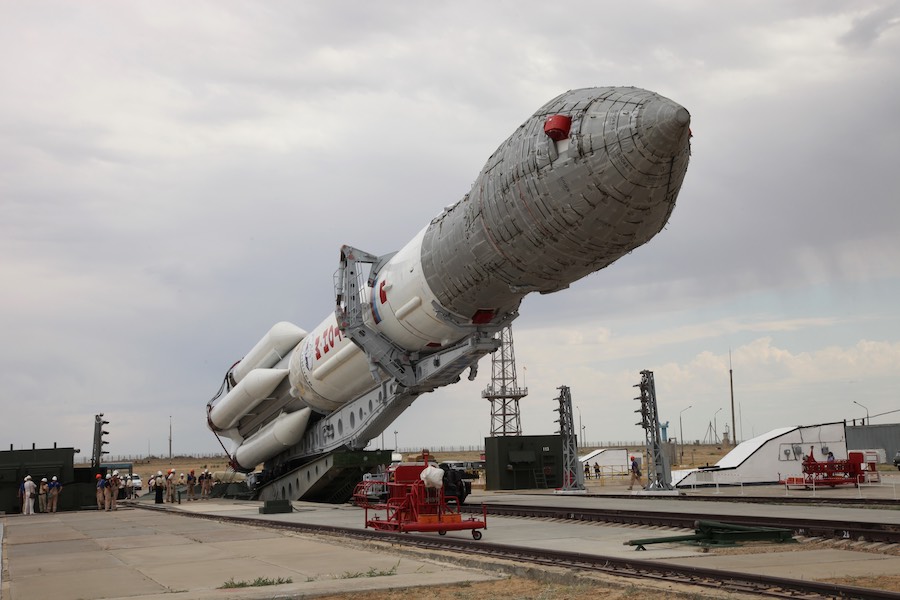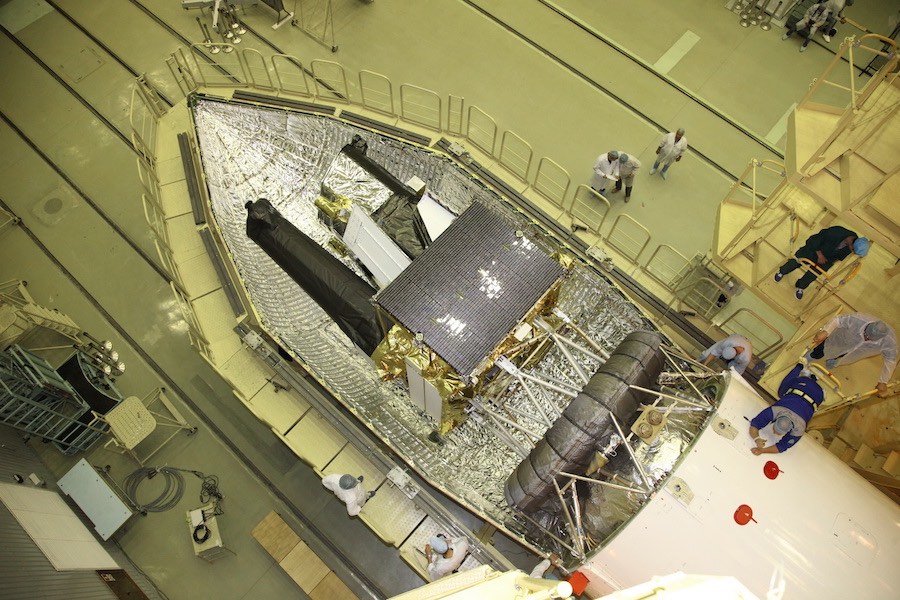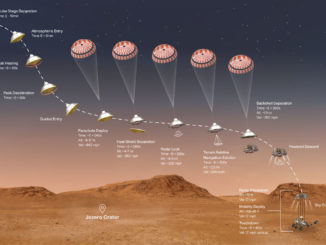
Russian officials postponed the planned launch of a Proton rocket with an X-ray astronomy satellite Friday until no earlier than July 12 resolve a problem with an inadvertently drained battery on the vehicle.
The Russian space agency, Roscosmos, confirmed the launch delay in a statement. Ground teams identified a “deviation” from the planned sequence for activating a “single-use” chemical power source on the vehicle, Roscosmos said in a statement.
Officials at the Baikonur Cosmodrome in Kazakhstan initially reported a problem with a battery on the Spektr-RG spacecraft, but reports later Friday suggested the battery might be on the Proton rocket’s Block DM upper stage. Roscosmos did not specify the location of the battery.
Members of the Spektr-RG science team at Baikonur said the battery in question powered heaters on-board the spacecraft, and was accidentally activated during pre-launch testing.
Ground crews at Baikonur must lower the Proton rocket horizontal and return the launcher to its assembly building, where workers will open the payload fairing covering the 5,980-pound (2,712-kilogram) Spektr-RG spacecraft and its Block DM upper stage.

The Block DM will provide the boost needed to send the Spektr-RG spacecraft toward its observing perch nearly a million miles (about 1.5 million kilometers) from Earth. The Proton rocket’s three lower stages will finish their firings in the first 10 minutes after liftoff, then the Block DM will fire its engine two times before deploying Spektr-RG around two hours into the mission.
After arriving at its distant observing post, Spektr-RG will begin a seven-year mission surveying the sky with twin X-ray instruments.
Spektr-RG is a joint project between Roscosmos and DLR, the Russian and German space agencies. The mission will conduct an all-sky X-ray survey, observing galaxies and large-scale galactic clusters to help astronomers examine the role of dark energy and dark matter in the evolution of the universe.
Spektr-RG is the most prominent, and most expensive, Russian-led space science mission to launch since 2011.
Email the author.
Follow Stephen Clark on Twitter: @StephenClark1.



